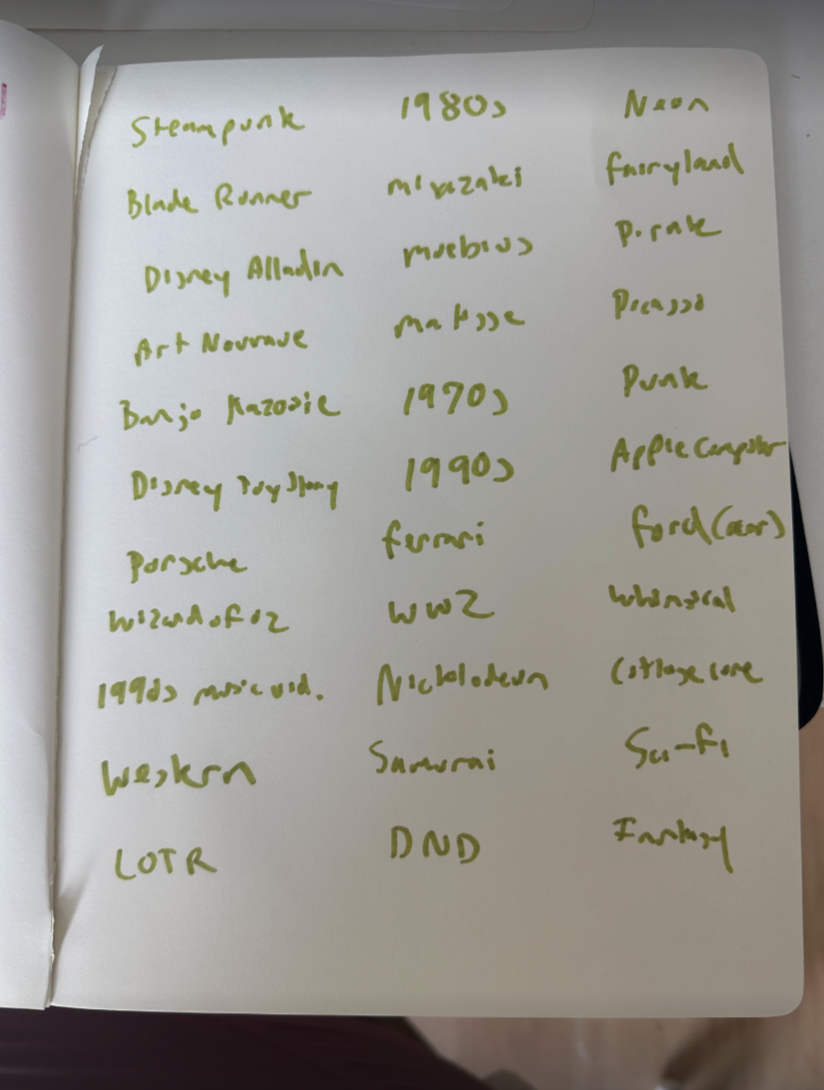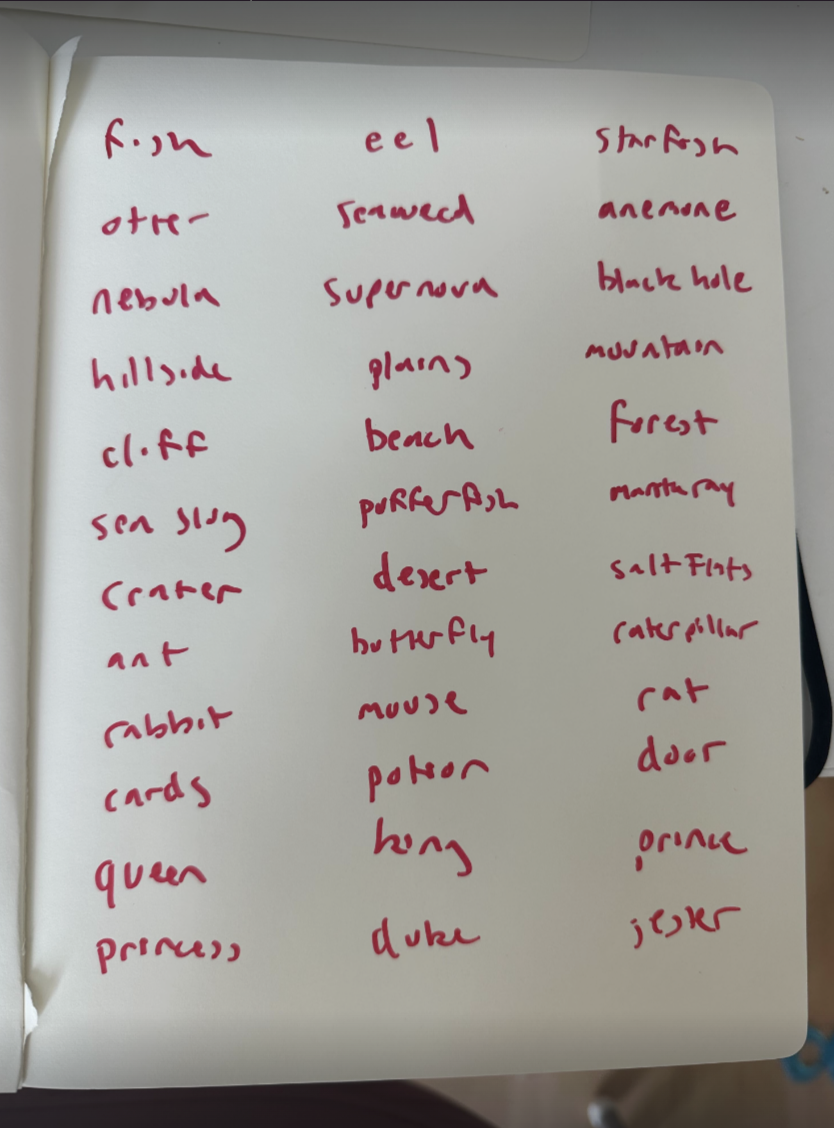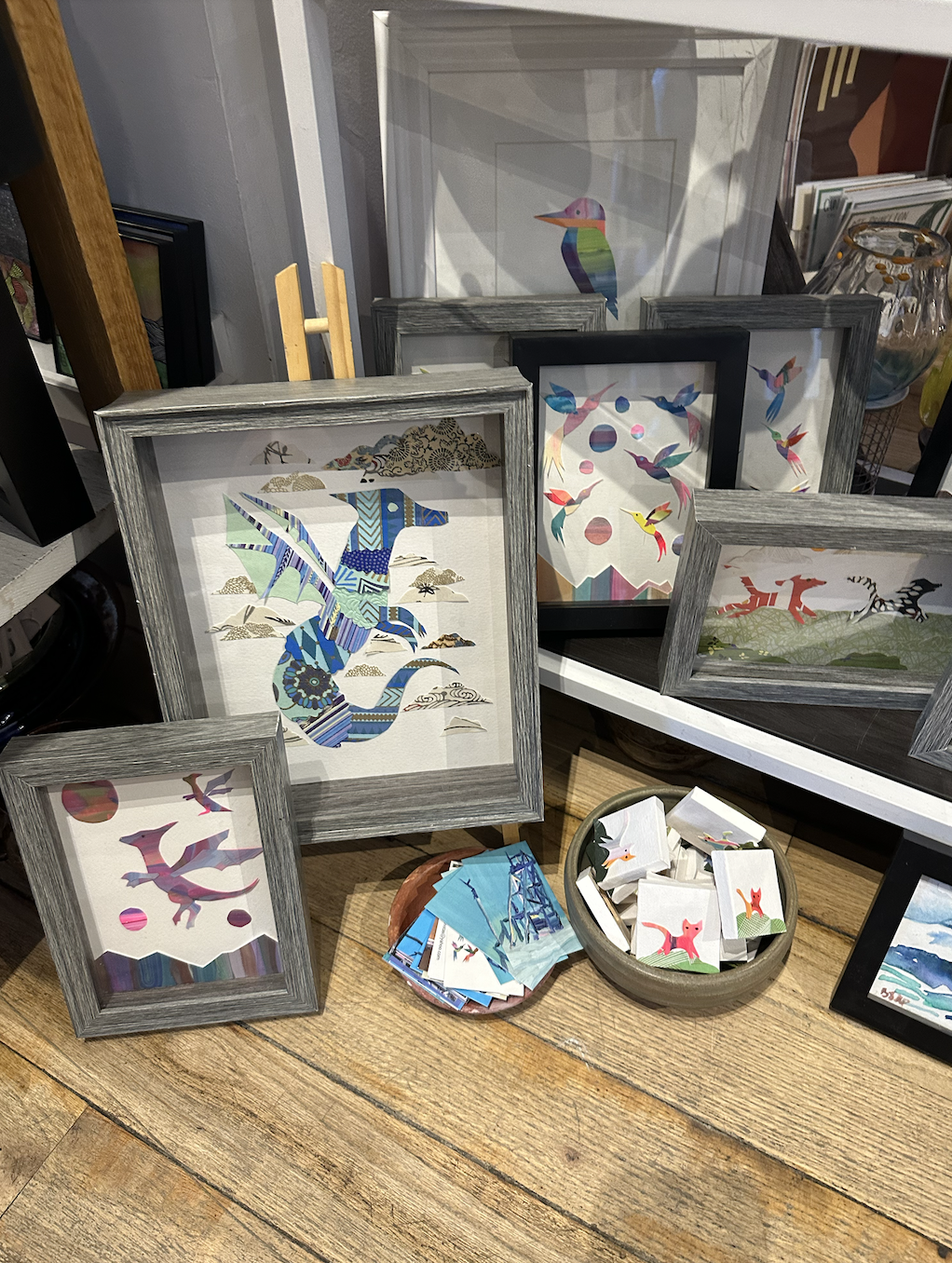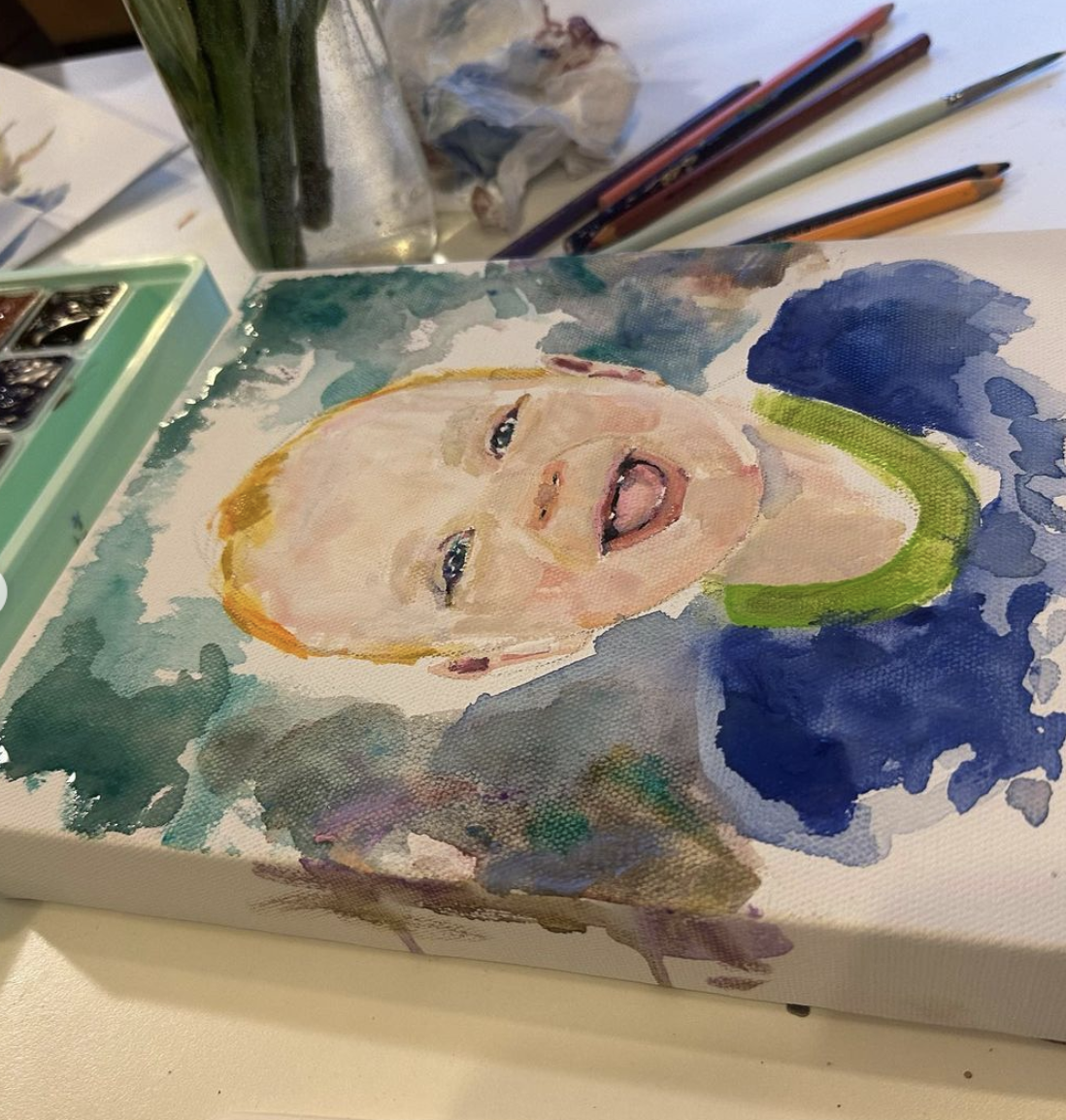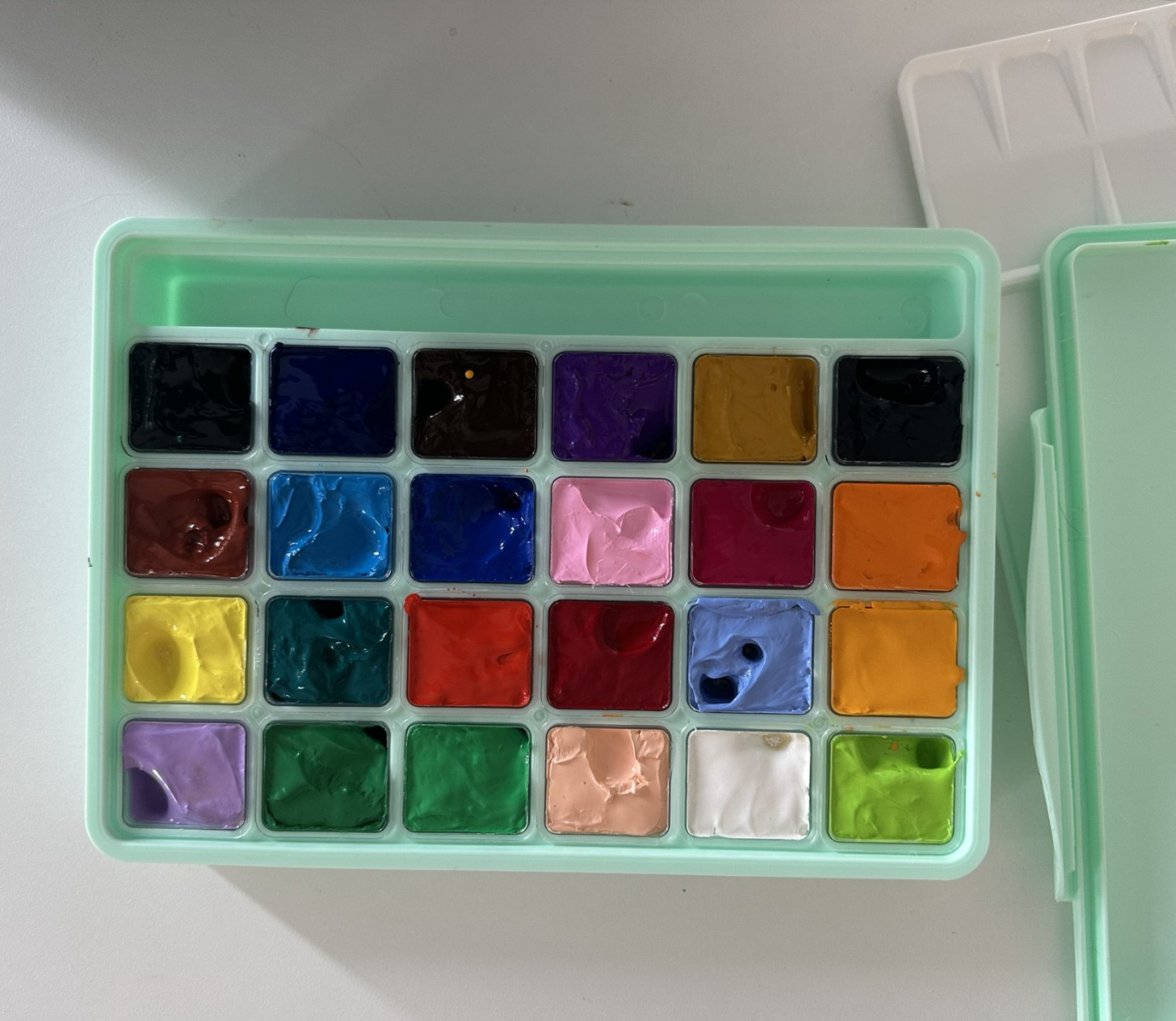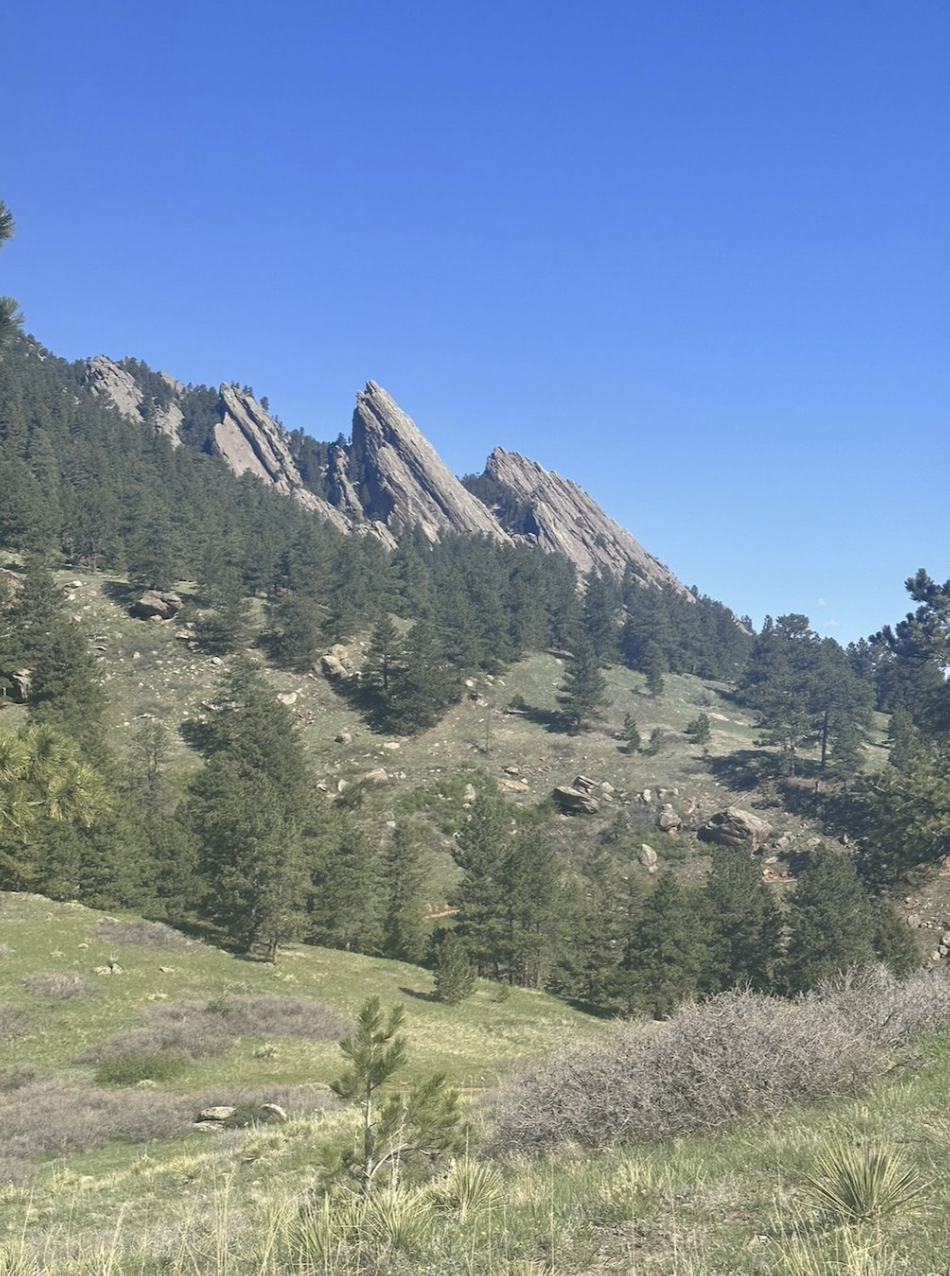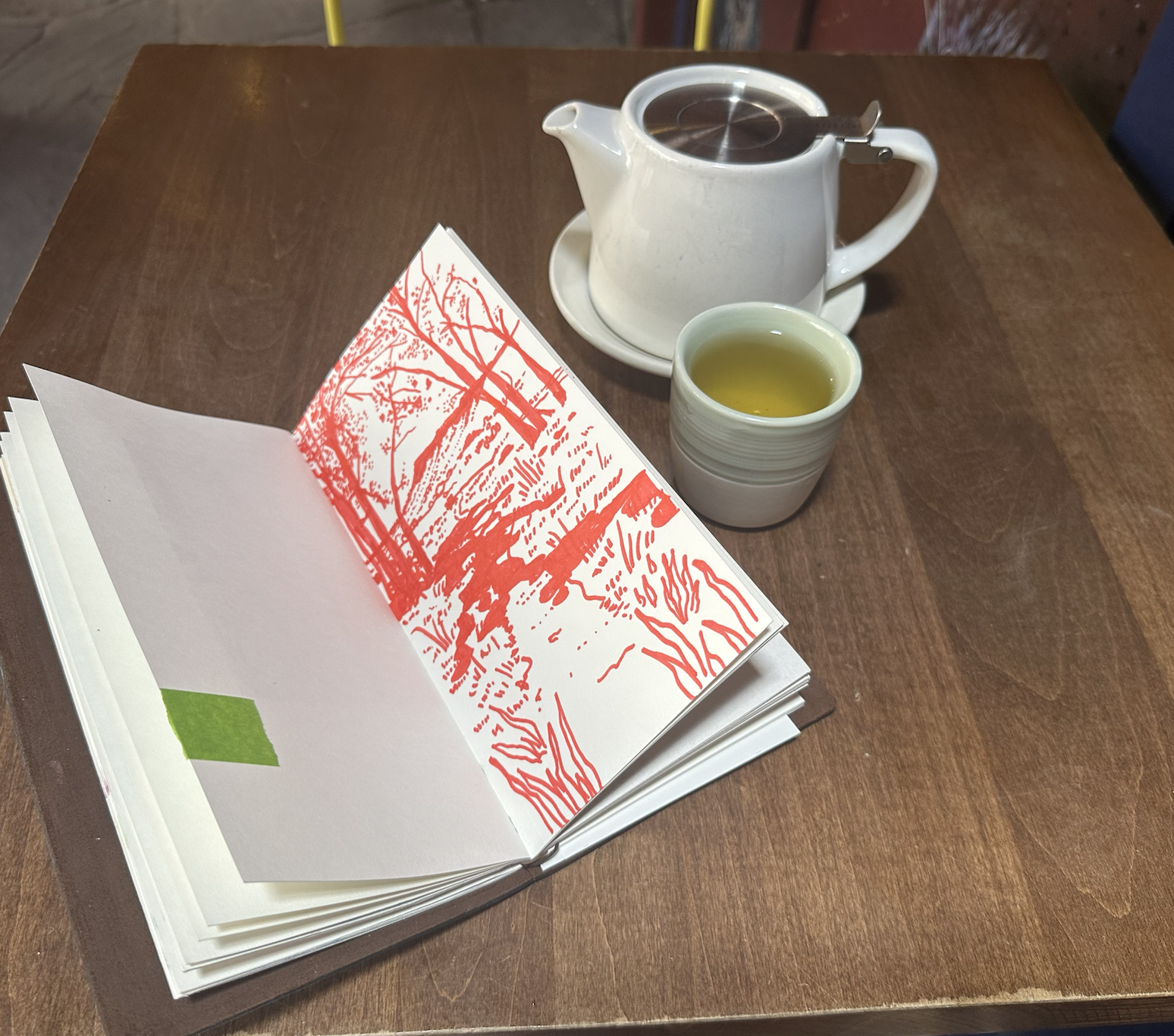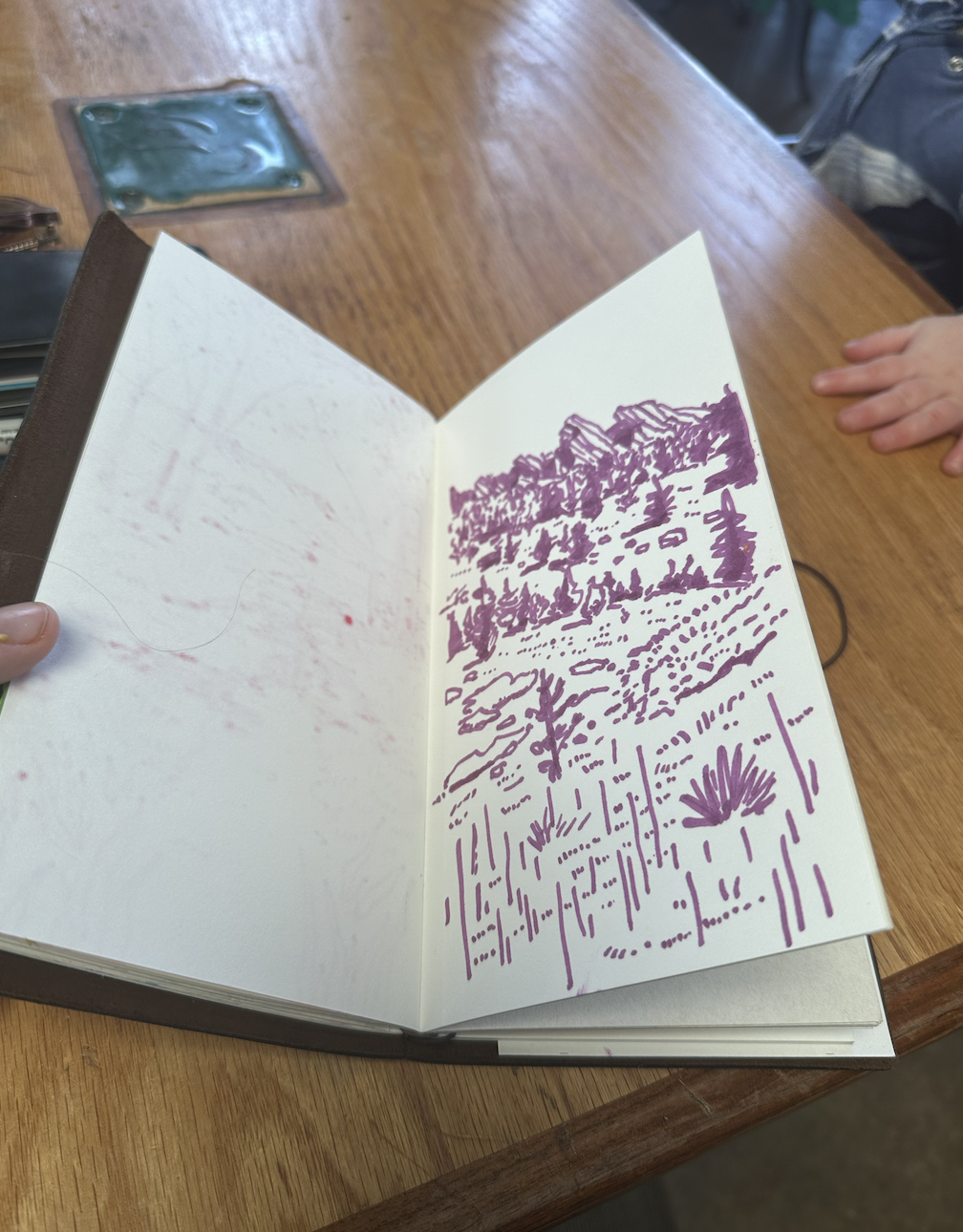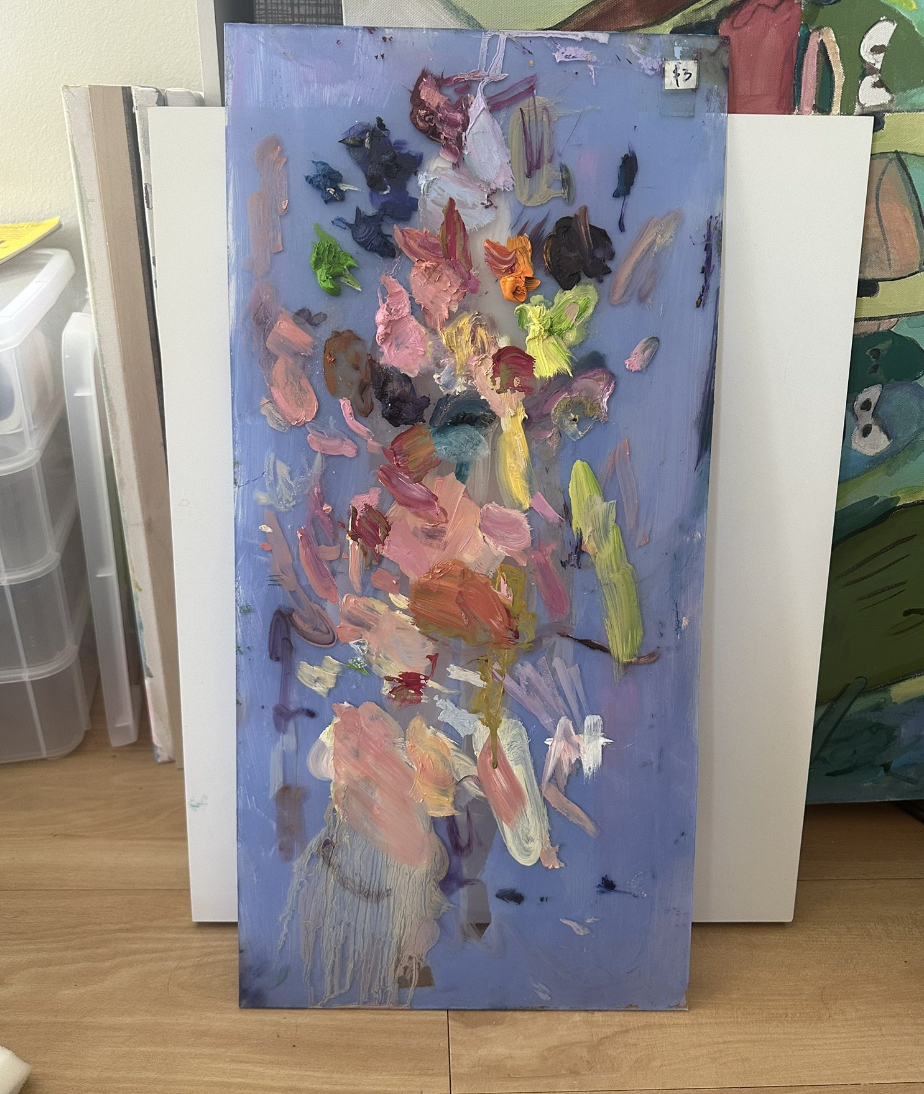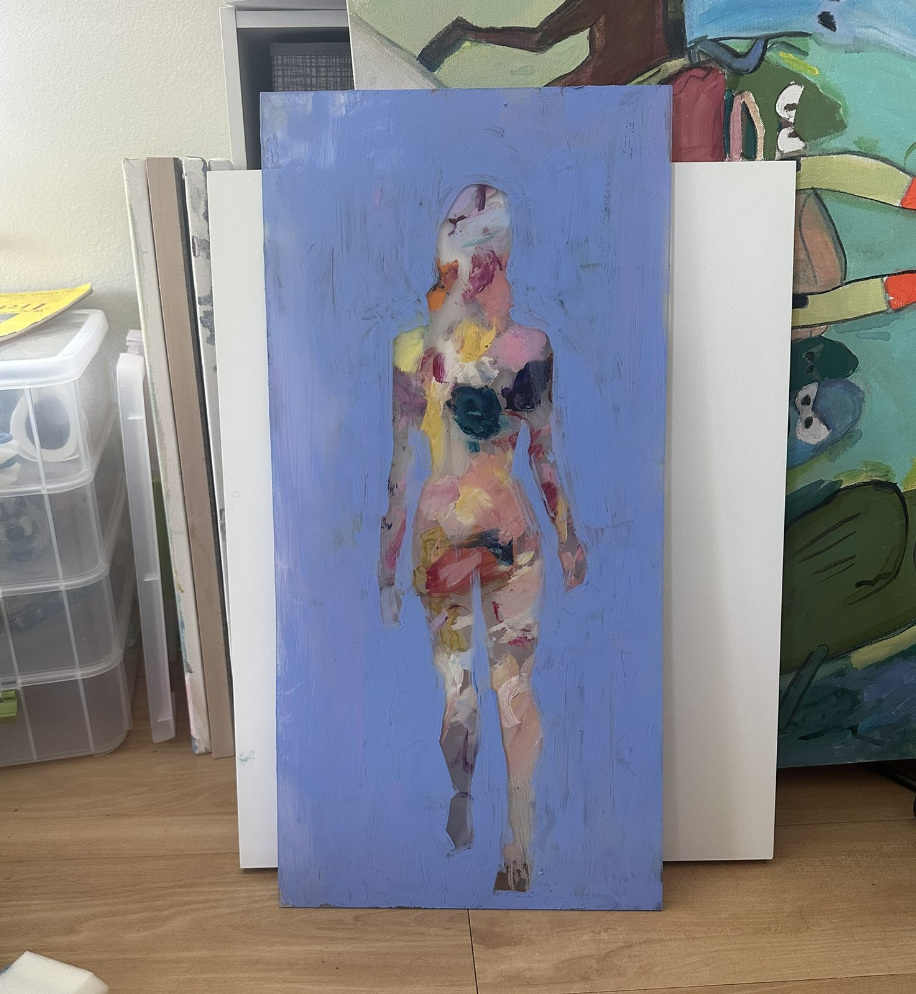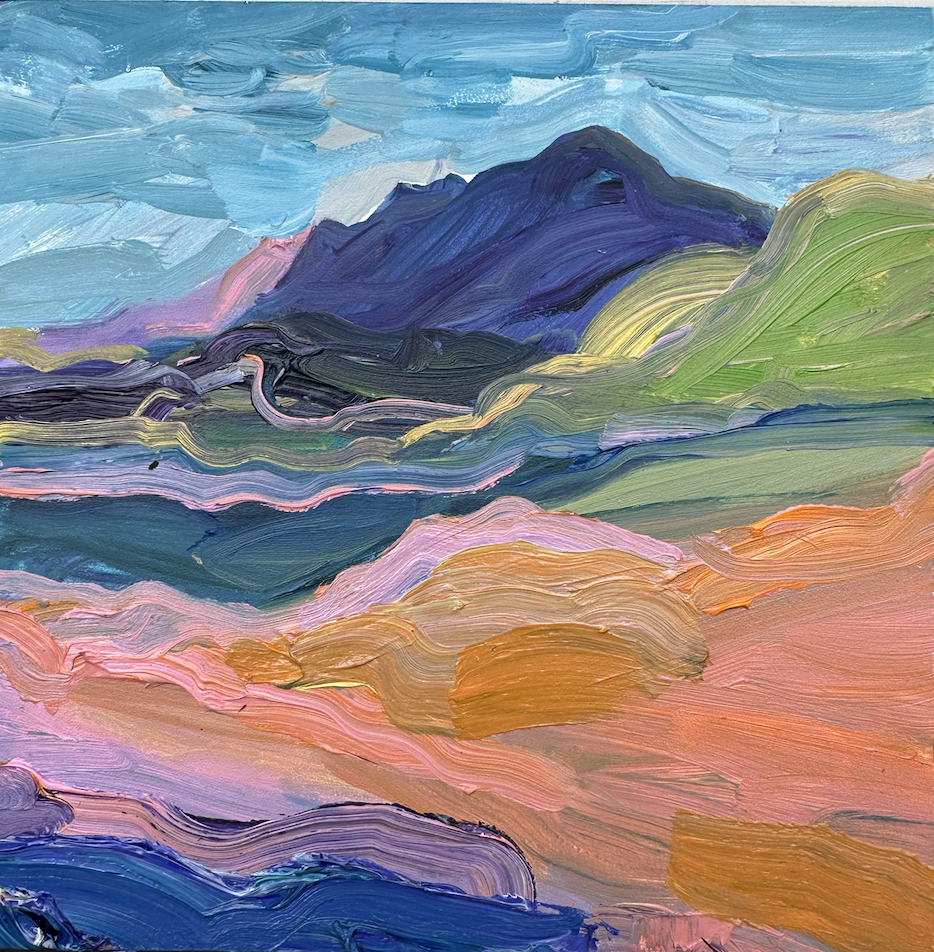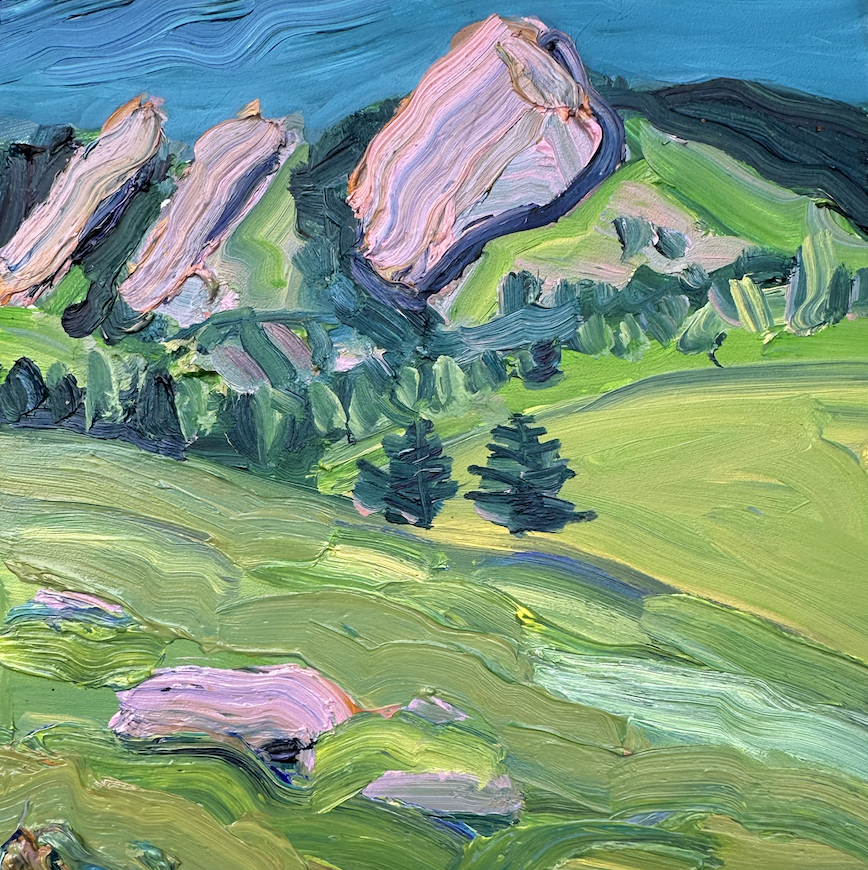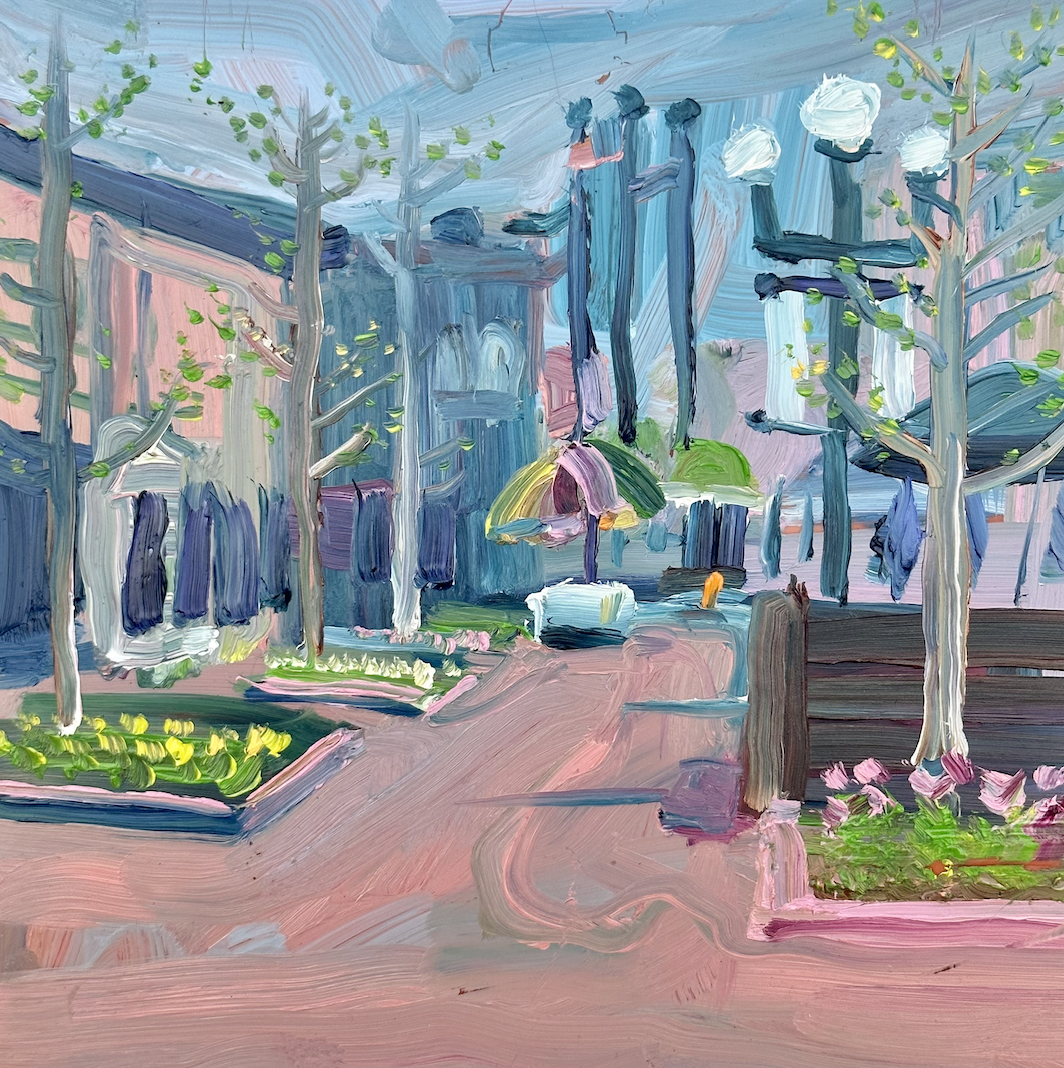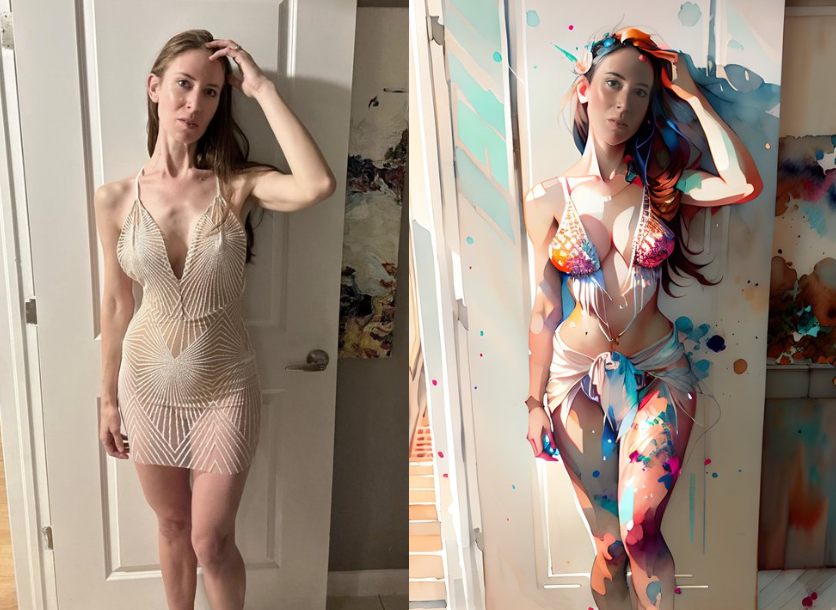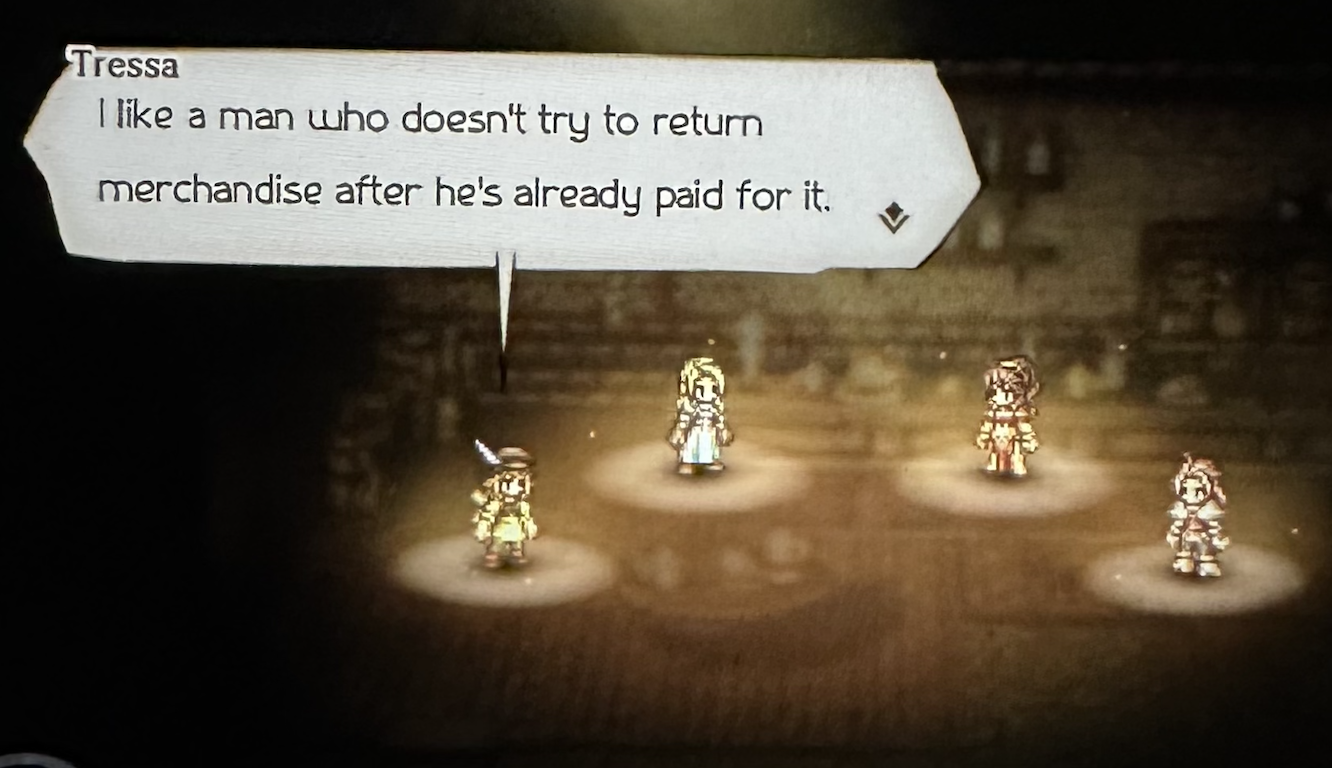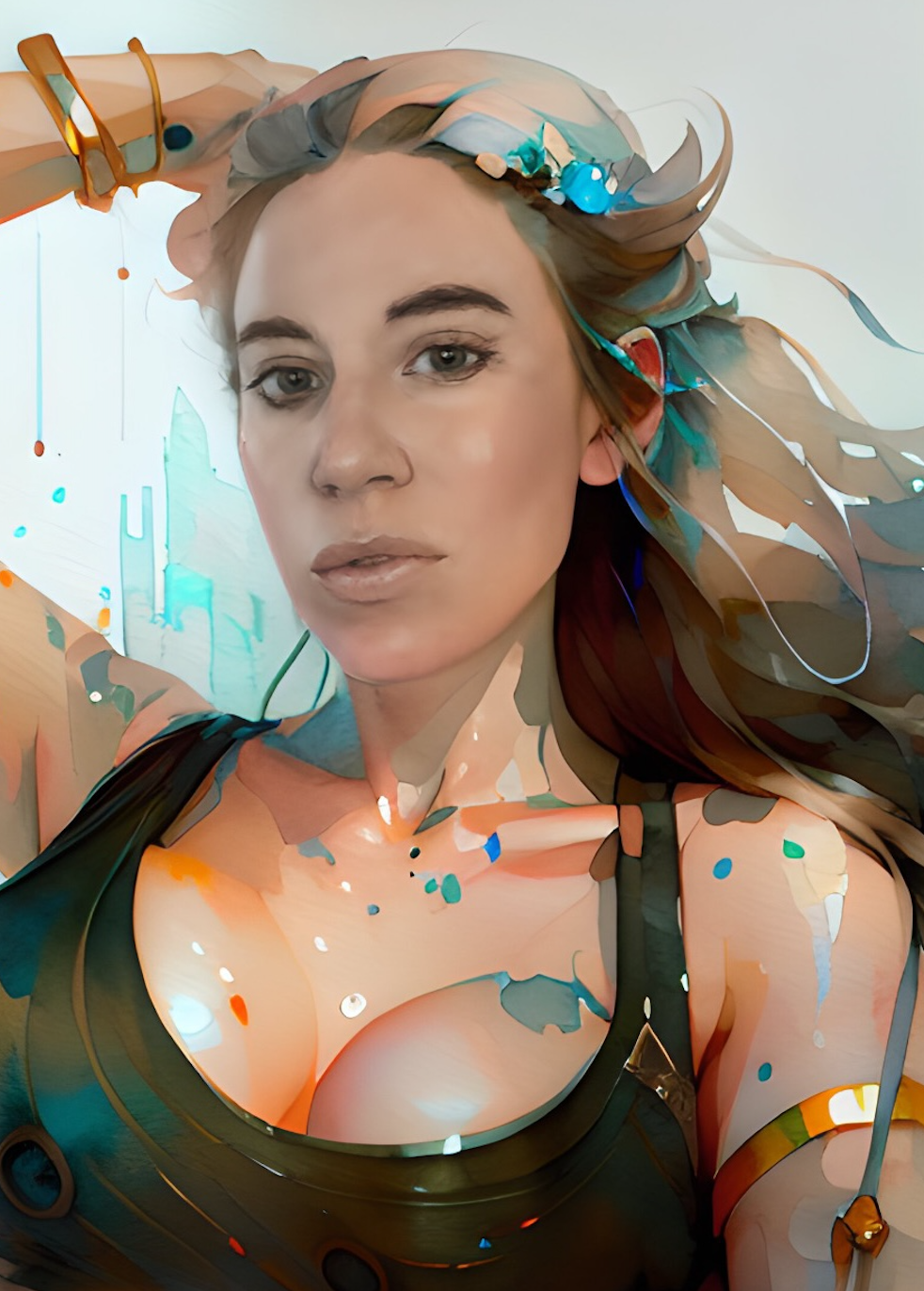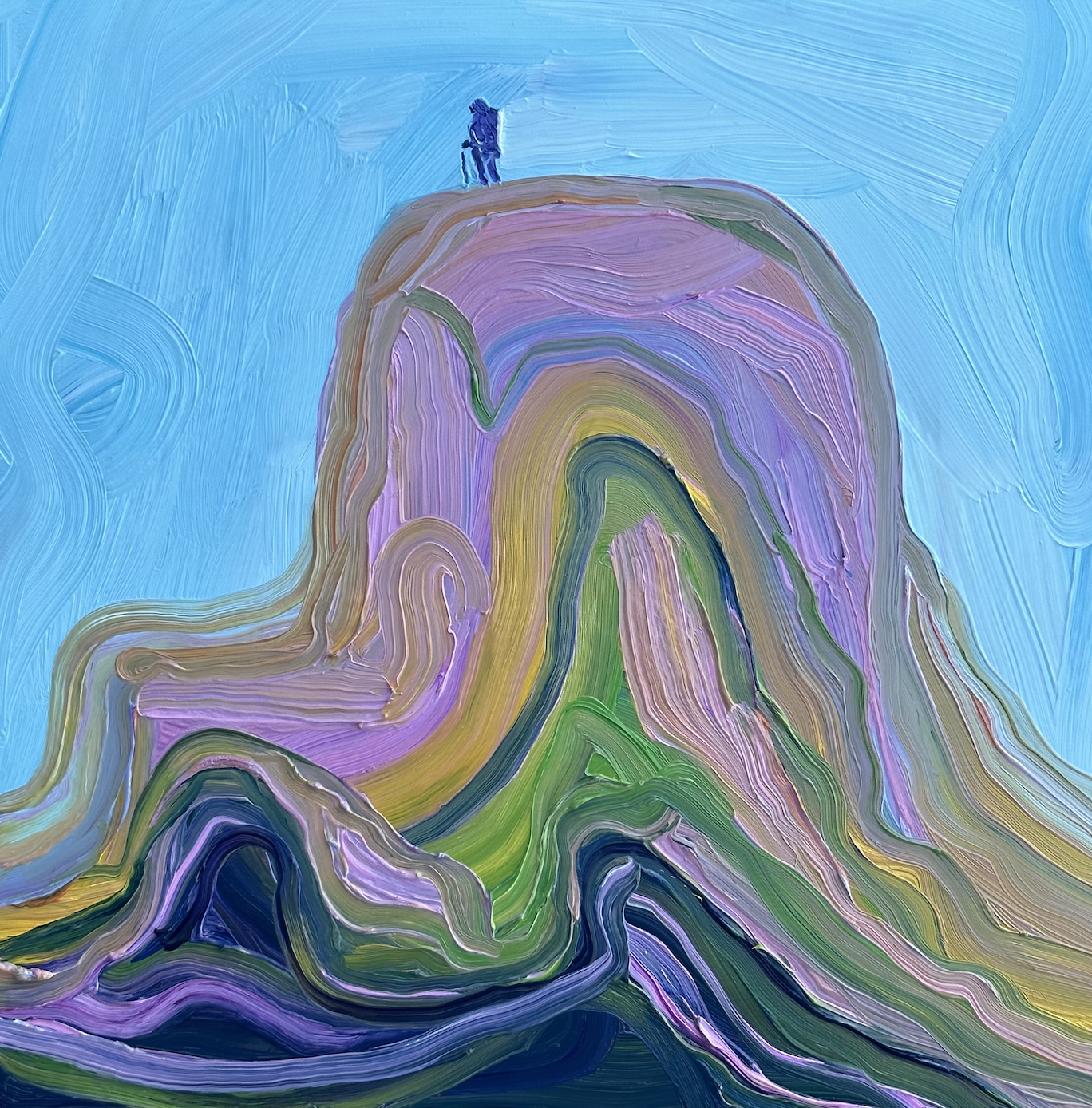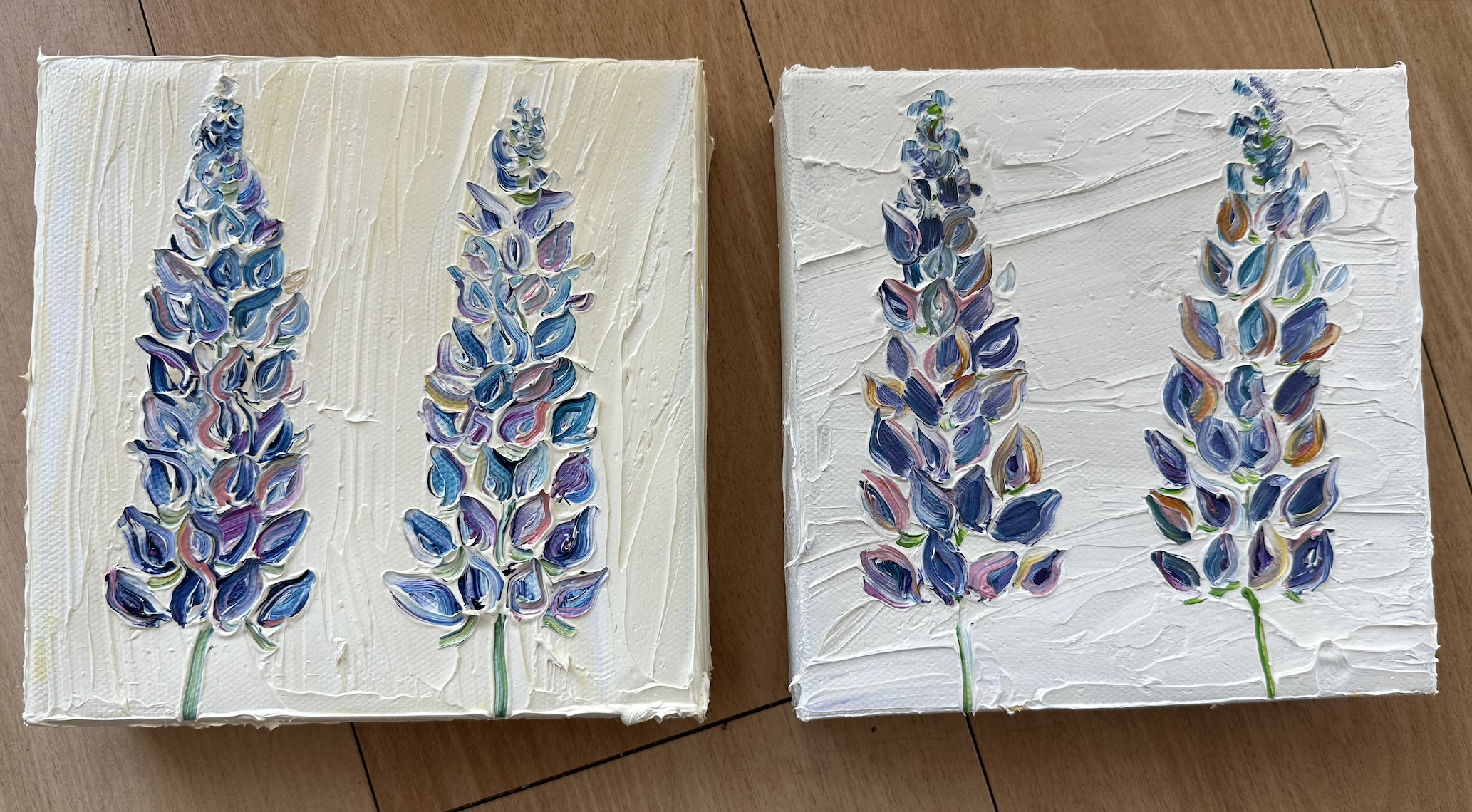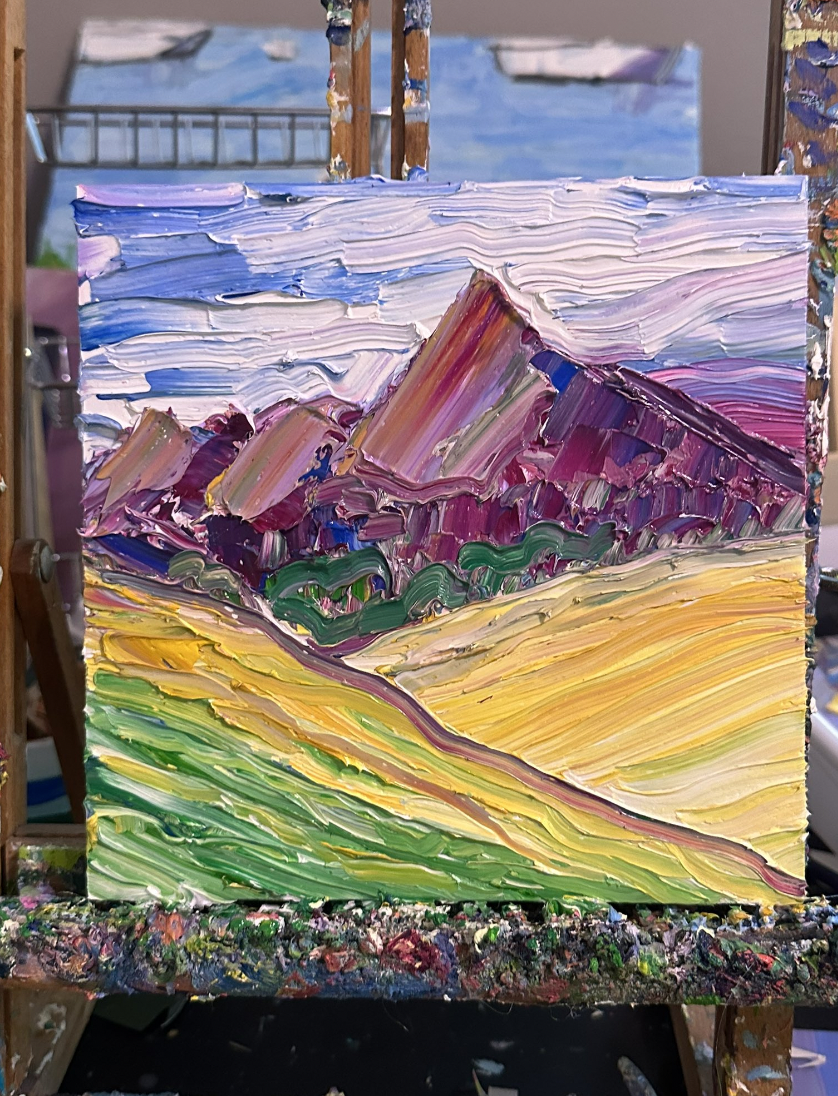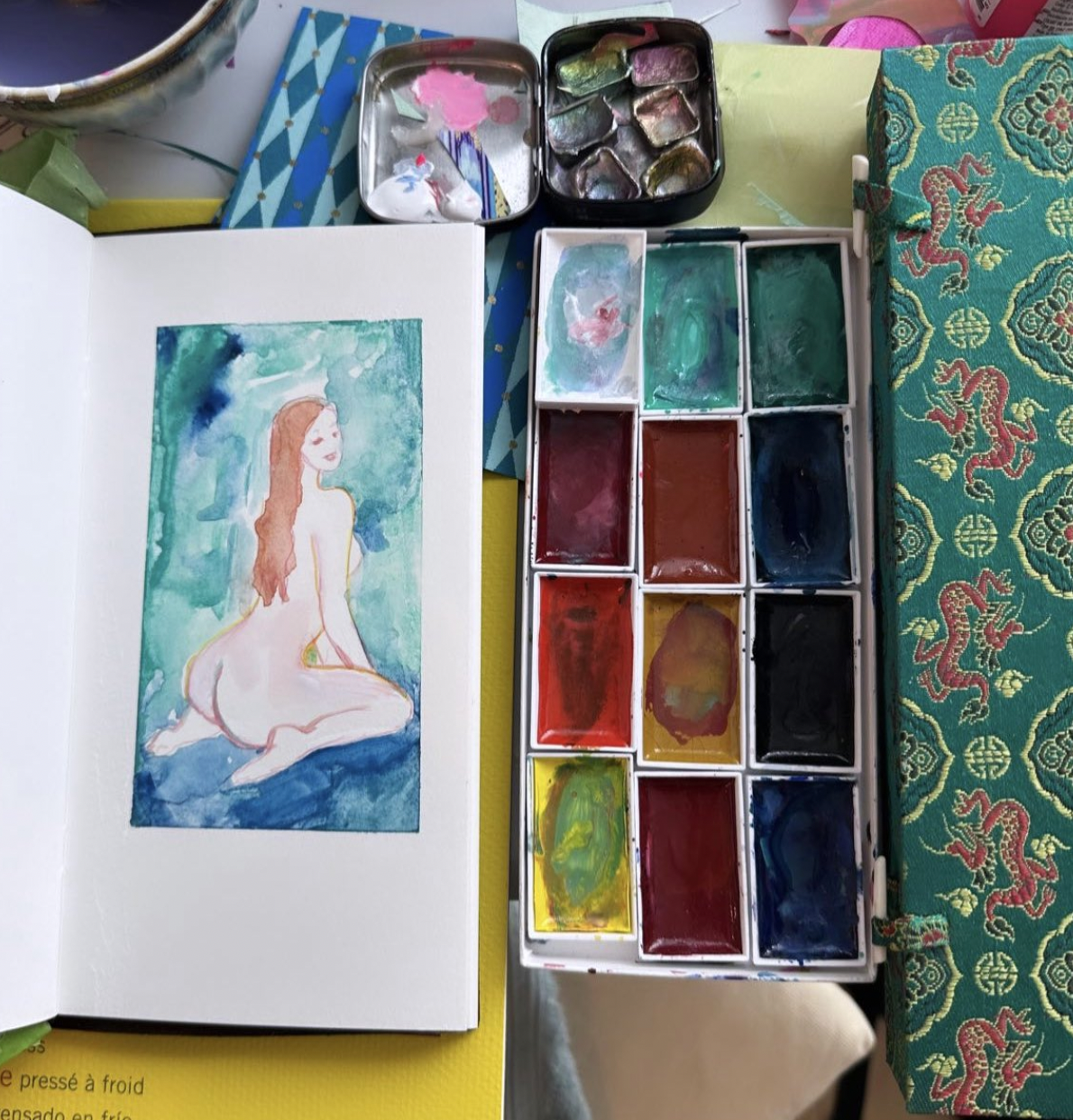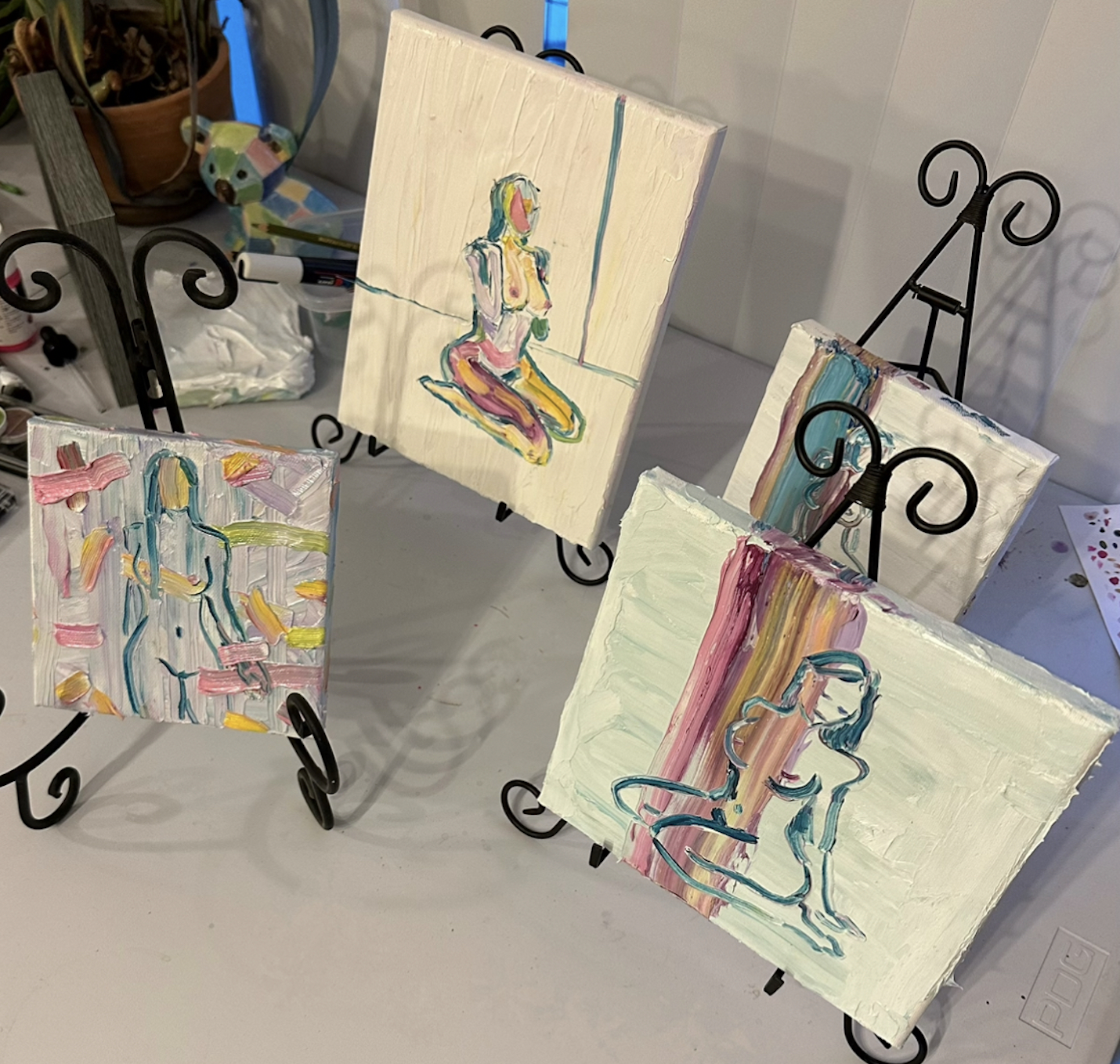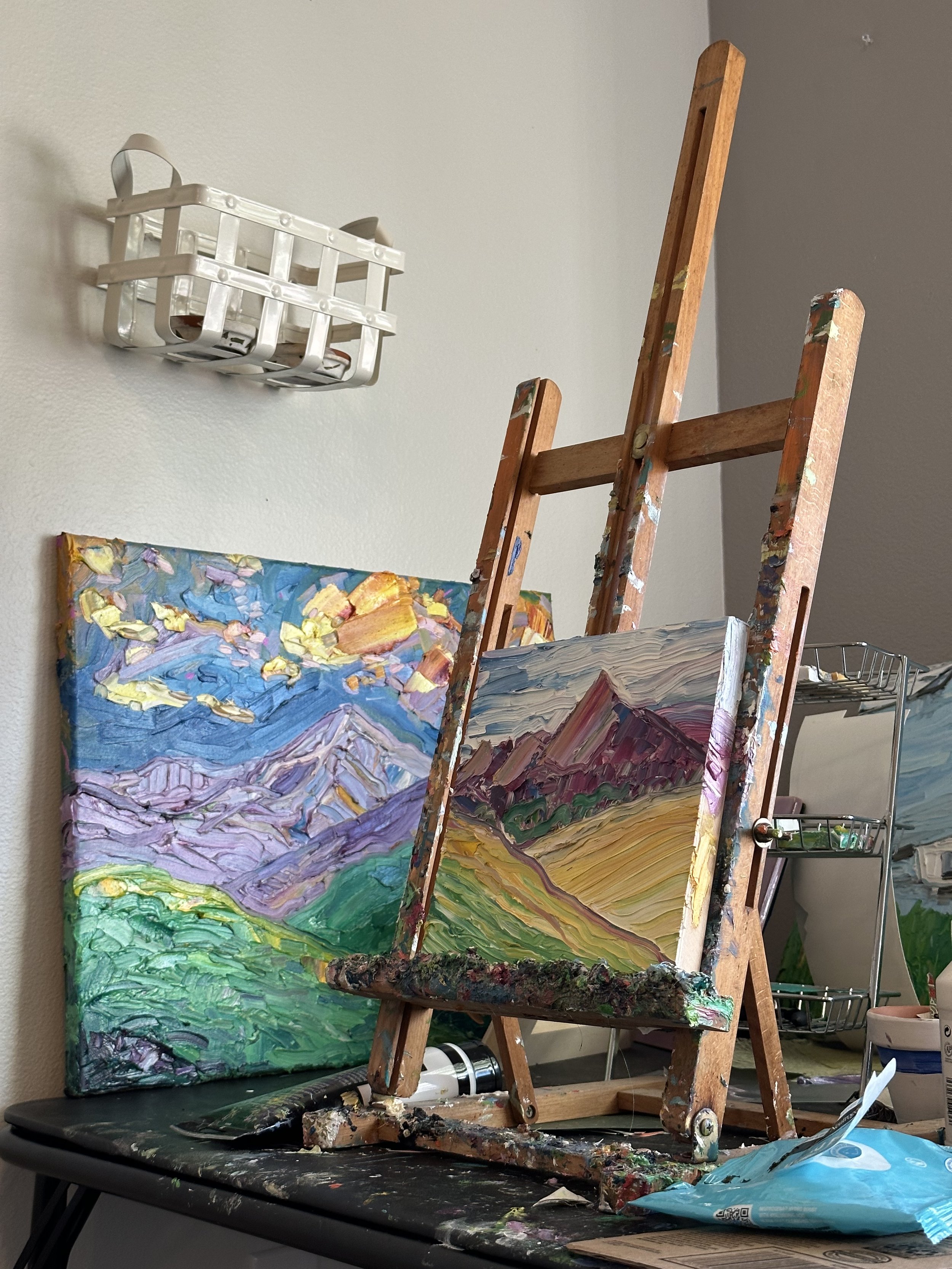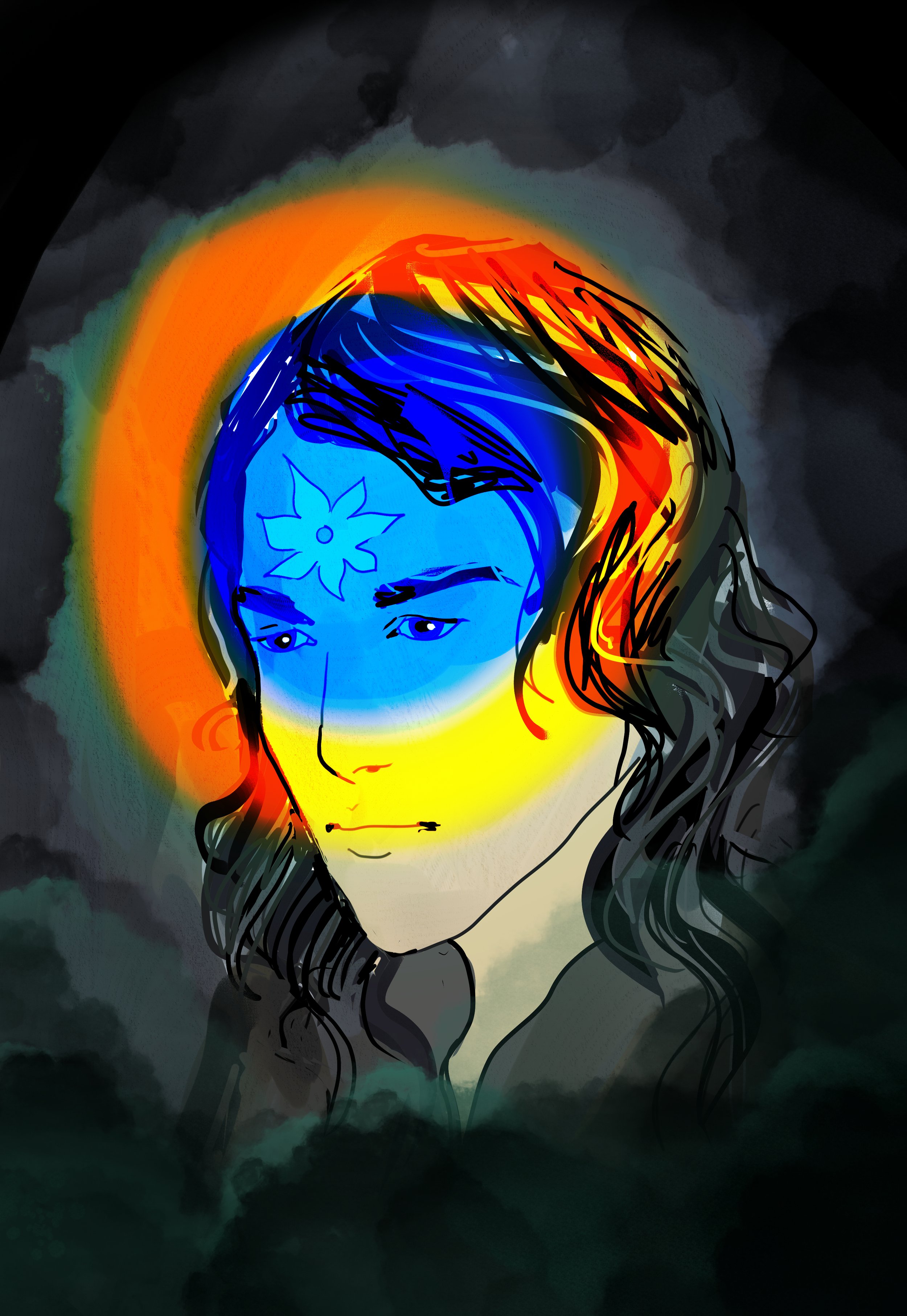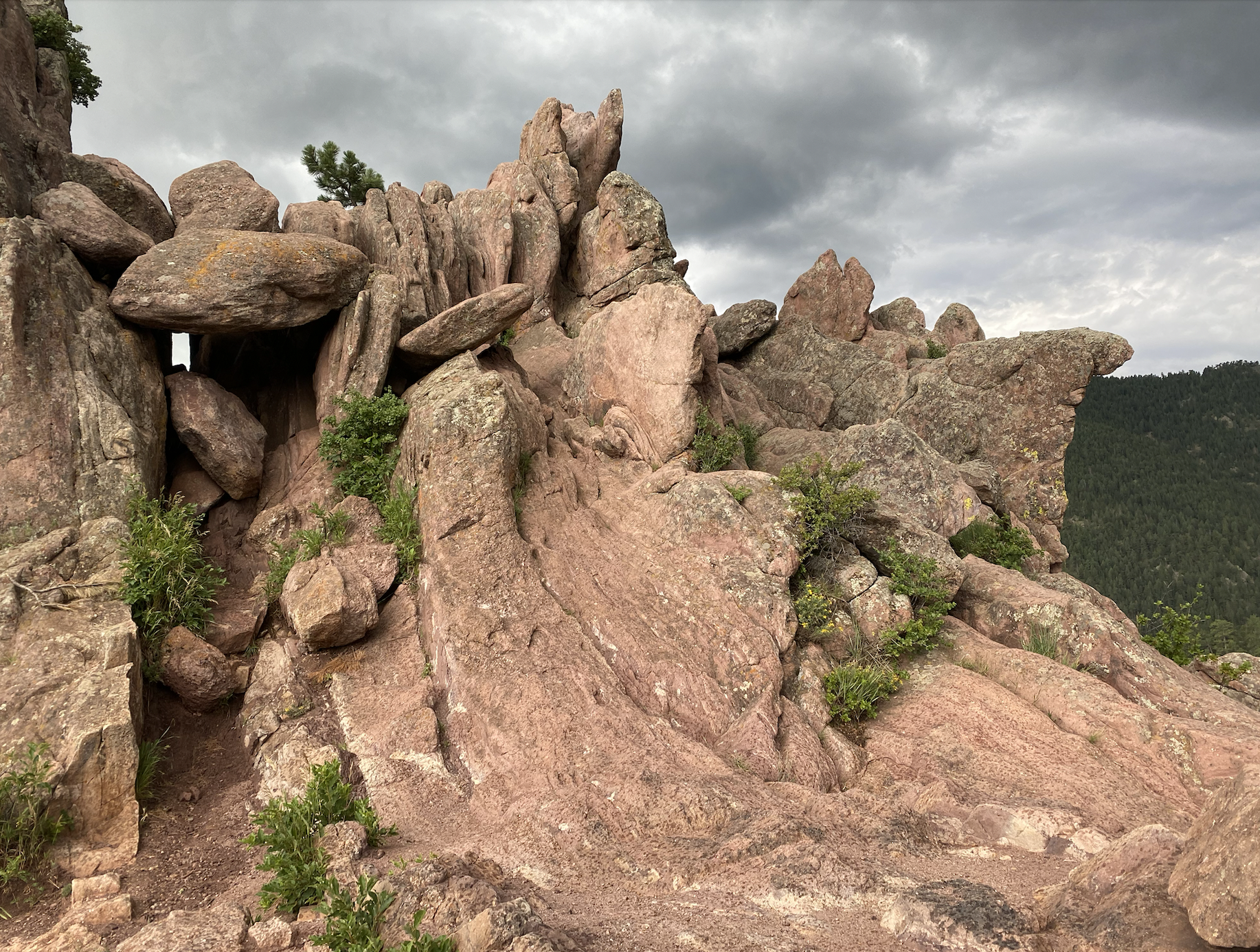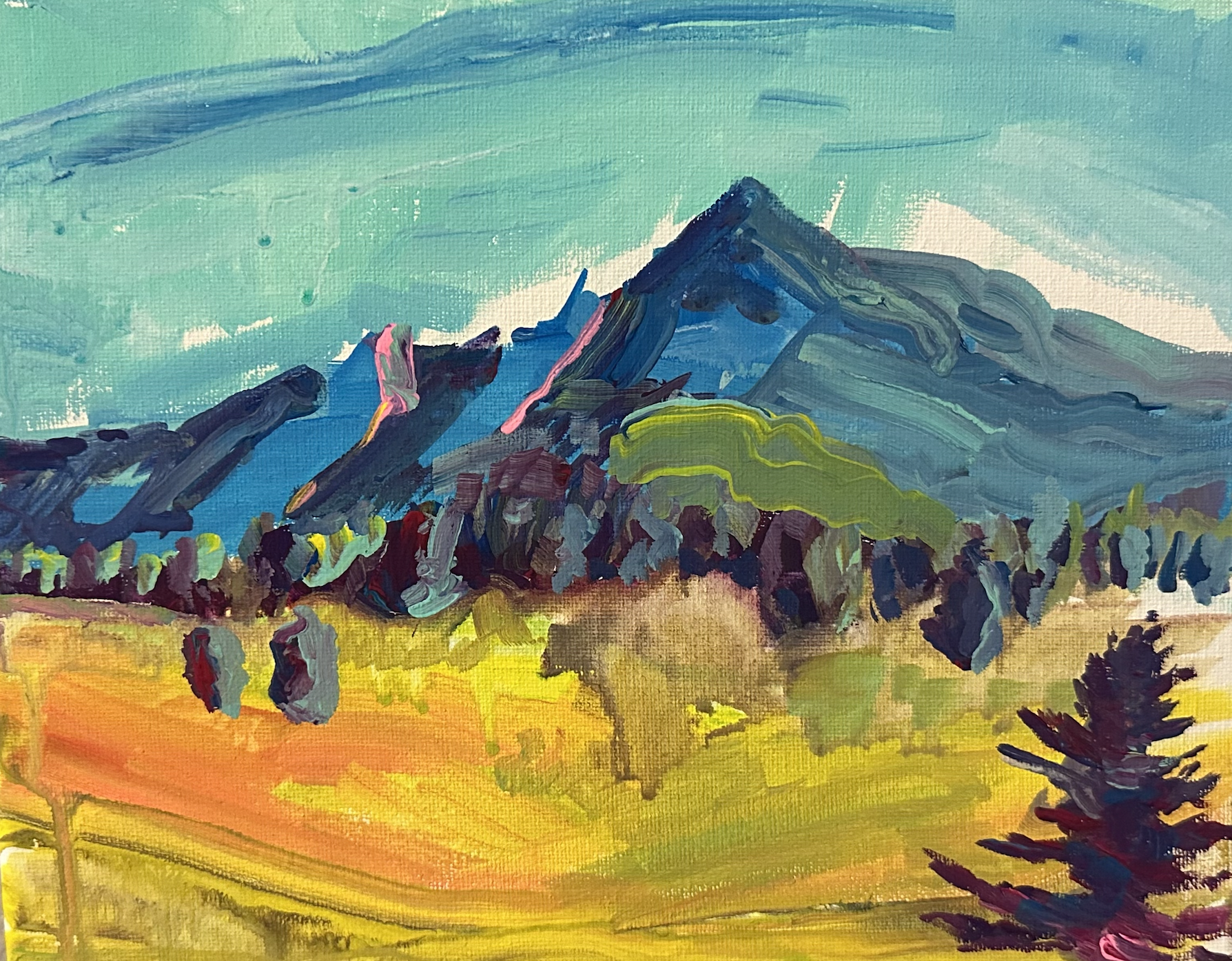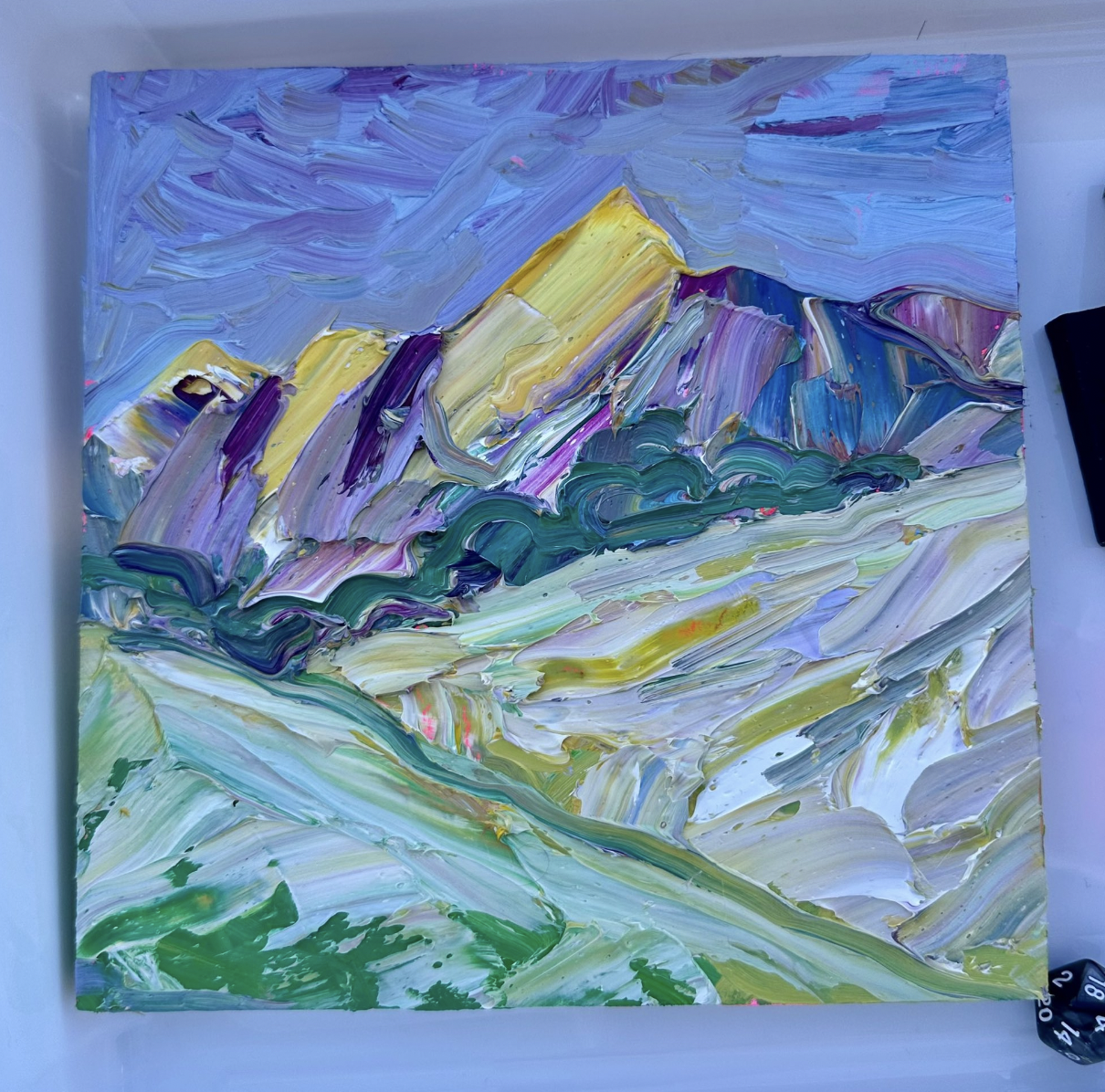This was a fun way to use an art supply and turn it into it’s own piece. I shouldn’t have let the oil paint dry, but I ran out of time to use it. It’s funny how even with oil paint, this happens for me. I don’t really forget that I have a palette ready to go, I simply have a lot of other things to do at times.
Reading/Watching/Playing:
I read ten books in May. Many of the books I read are now kindle suggestions, books I find in Little Free Libraries, or Gene Wolfe books.
Put your A$$ where your Heart Wants to Be - Steven Pressfield
I loved what is probably considered the classic Steven Pressfield book “The War of Art” and my kindle showed me “Put your A$$…” on my suggested list so I shrugged and hit “buy now”. I didn’t check to see when it was written before reading it, and I could tell right away that this is a good update to The War of Art, or an addendum that makes sense in 2023. He refers to more recent anecdotes and apps like Instagram and Zoom, so this feels fresh. Though I appreciate remote work and have been a remote working, I also appreciate the message of this book, which is “You have to go there.” The action for us to take from this book could be anything from sitting in our studio to moving to wherever the art we love is happening. Being someone who has moved around quite a bit for various reasons, some of them being love or passions and others being more practical, this made a lot of sense to me.
The book description says it is a ‘tough love’ book but I didn’t feel like it was that way. Maybe to use a few words I just used above, it’s a practical kind of love, but still feels full of the thrill of pursuing the arts.
My Body - Emily Ratajkowski
I’d been wanting to read this book for a while, and since I was looking for the Ben Riggs book below, and was searching for books with R authors, and saw this one. I loved this book and there were a lot of relatable moments in this book for me. I felt less alone in some things after reading this book.
Slaying the Dragon - Ben Riggs
This was a fun book about Dungeons and Dragons and TSR before Wizards of the Coast acquired the company. Which I must have known at some point but also must have forgotten. I believe the author is wildly fair to each person depicted in the book. Nobody is an outrageous villain, and if someone is a perfect angel who does no wrong, it’s a bit of a joke. He has a lot of moments where he covers the company’s varied mistakes, and reels in judgement by constantly checking any 20/20 hindsight bias at the door. This was quite refreshing, otherwise it would seem like an overly reverential book or a mean-spirited one. It took me a few chapters to get used to the writing in this book, but once I did, I loved it. It’s a fun narrative nonfiction style.
The Power of One More and #Maxout - Ed Mylett
Ed Mylett came up on my youtube playlist one day and I really enjoyed what he has to say. The premise of The Power of One More is simple enough, to summarize, if we could all make one more phone call, one more meeting, one more rep, and how that improves life. I responded to this idea fairly well. After reading the Power of One More, I also read #Maxout and thought it had many solid principles. Oftentimes I will read shorter, nonfiction books like The Power of One More and Put your Ass Where your Heart Wants to Be while I’m reading books that seem tough to scale, like most of the Gene Wolfe books. I will read two or three books at a time and finish shorter books before I finish longer books. I seem to both enjoy this and need the variety. The shorter books make me feel less like I’m slogging through one giant thing. It’s fun to have memories about books this way too, sometimes my brain finds ways to relate each book to other books, or I will see similar themes in books, and I really enjoy this.
Multipliers - Elizabeth Wiseman
I found this book in a Little Free Library and had heard the concept of Multipliers through the Ed Mylett book above, and possibly a few other places. It’s a good concept. Like Radical Candor, it’s a book where the title term alone makes enough sense, and the book contains all the nuance, antitheses, and details about the title term. To summarize, the whole point of the book is to try to be a Multiplier, or someone who enhanaces the skills and lives of others, as opposed to being a Diminisher, a person who reduces others. If you can’t be a Multiplier, the best hope is to get near one or work with one. Ultimately, if we’ve ever worked with a person who makes us a better person, that’s a Multiplier. I also liked that the book says that some people are Multipliers and Diminishers throughout their lives and in different environments, so neither condition is permanent.
Along the River that Flows Uphill - Richard Starks and Miriam Murcutt
I found this book in a little free library in Boulder and thought it looked interesting so I gave it a read. The way I figure, I will probably never be able to venture to the place featured in this book, so it would be a fun travel read.
The book is about two travelers who travel up the Orinoco river. There are meetings with natives, giant fish catches, wildlife sightings, and riverboat trips. It all has a bit of danger associated with it, or maybe more than that. Plus this book was more philosophical than I thought it would be, which to me was a nice surprise.
Visual Thinking - Temple Grandin
I regret to say I haven’t read any other Temple Grandin books and this is my first one, but I think it was possibly her most pertinent book for me and many people who suppose they are visual thinkers.
This book surprised me a bit and took me a few moments to adjust to, because one of the main problems in the book for Grandin is algebra. The challenge of algebra, according to Grandin and a slew of research, holds too many brilliant thinkers back in school, and that while we shouldn’t do away with math, we should rethink the cultural valuing of algebra. The main difference between most visual thinkers that are described in this book is I was good at algebra and calculus in school. I didn’t really want to do it, but I was at least okay at it most of the time. I was salutatorian of my class in high school so I must have done okay in it, even if I remember it being a bit painful. One of my memories from calculus was during the last week of my last year of high school, calculus became creative, or I finally saw how one could write their own formulas and figure stuff out.
What’s good is Grandin doesn’t polarize in this book, for Grandin there’s a spectrum of visual thinkers rather than any statements like “you’re either right or left brained” which is realistic to me.
The Fifth Head of Cerberus - Gene Wolfe
I just can’t get enough of Gene Wolfe I guess. I really like the Fifth Head of Cerberus, the second section (Sandwalker, ect) was a lot for me to get through but I raced through the first section. What I love most about Gene Wolfe is how he very slowly reveals details of his worlds to his readers, it isn’t easy to place what time, what planet, or even what kind of people are in his books. It makes second readthroughs better. It feels like knowing a secret. I like shows like Westworld and books like the Fifth Season for similar reasons though each isn’t the same dynamic as Gene Wolfe books, there are similar “ohh” moments.
Nightside the Long Sun - Gene Wolfe
I have a volume of The Litany of the Long Sun and couldn’t put it down at the end of May. This book has everything and is way friendlier than Book of the New Sun to me. I am glad I read Book of the New Sun first, this book is like dessert afterwards even though it’s also very long. The first book of Litany is Nightside the Long Sun and I was able to finish it. I won’t spoil too much of this other than to say it reminds me of Cowboy Bebop, but Spike is a priest-type character. There are robots, heists, enlightenments, gods, drugs, brothels, talking animals, possessions, exorcisms, tavern contacts. I love this book. I’m already on to the next book in Litany and am enjoying it quite a bit.
Now Playing: Tears of the Kingdom
I was excited to play the new Zelda game, even though living in Colorado is a lot like living in Skyrim or a Zelda game. I almost never buy games opening week unless it’s a Pokemon game, mostly because I either miss opening week or am thinking about other stuff, but I bought the game when it came out and I enjoyed playing it. I think the details of the natural world in the game are charming and maybe even more developed than in BOTW.
I haven’t had a lot of time to play this game but I’ve liked what I’ve played so far. What I do with videogames is I play them if I’ve done everything else I’ve wanted to do on a day. If I’ve hit my running goals and reading/art tasks, plus of course all my default mom duties, I will play TOTK for 20 minutes or so. The other game I really like on switch is Octopath Traveler, the first one, and maybe someday I will get the second one.
Running:








